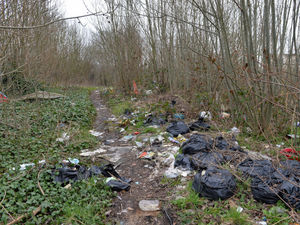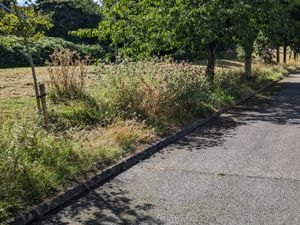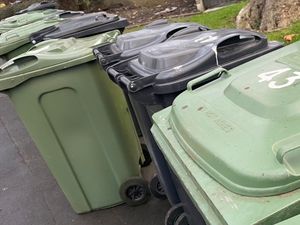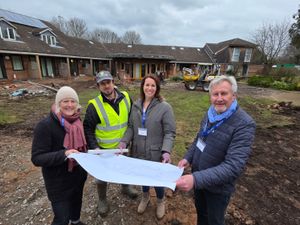Thousands of fly-tips reported across the Black Country during pandemic
Almost 20,000 cases of fly-tipping have been reported to councils across the Black Country and Staffordshire during the first year of the pandemic, figures show.

Data from the Department for Environment, Food and Rural Affairs showed 19,611 reports of fly-tipping were made in 2020/21 – up from 13,527 the year before.
And several fly-tipping incidents were recorded in the Black Country and Staffordshire as rubbish continued to litter the streets creating an eyesore for residents.
Campaigners say "significant progress" needs to be made to tackle the issue which was "exacerbated" due to lockdown restrictions last year and tips being closed.
Sarah Lee, director of policy and campaigns at the Countryside Alliance, said: “From quiet rural lanes and farmers’ fields to bustling town centres and residential areas, fly-tipping continues to cause misery across the country.
"Fly-tipping continues to wreck the lives of many of us living and working in the countryside – and significant progress needs to be made to stop it.
"Lockdown and the subsequent closure of tips only exacerbated this situation and we would urge local authorities to think very carefully about preventing access to these facilities in future.”
Figures show 3,056 incidents were reported to Wolverhampton Council – an increase of 24 per cent on the year before where 2,463 discoveries were made.
A total of 13 fines – totalling a combined £8,200 from court convictions – were issued in the area last year, up from nine in 2019-2020. Wolverhampton Council carried out 1,017 enforcement actions in 2020-21, including 67 fixed penalty notices.
Fly-tipping reached a record level in Dudley meanwhile, with 1,834 fly-tipping incidents – an increase on the 1,224 reports the year before and the highest number since comparable records began in 2012-2013.
However, no fines resulting from court convictions were issued in the area last year – down from one in 2019-20. Dudley Council carried out 674 enforcement actions in 2020-21, including 23 fixed penalty notices.
In Stafford, figures show 773 incidents were recorded – an increase on the 427 the year before and the highest since comparable records began.
Meanwhile, one fine, a combined £1,100, resulting from a court conviction was issued in the area last year – up from none in 2019-20. Stafford Council carried out 294 enforcement actions in 2020-21, including eight fixed penalty notices.
Walsall saw 3,618 fly-tipping incidents, up from 3,441 made in 2019-2020. However, no fines resulting from court convictions were issued in the area last year – and none were issued in 2019-20. Walsall Council carried out no enforcement actions in 2020-21.
And in Sandwell, fly-tipping hit a record level last year with 10,330 fly-tipping incidents which marks a substantial increase from 5,972 made the year before. However, no fines resulting from court convictions were issued in the area last year – and none were issued in 2019-20. Sandwell Council carried out 1,301 enforcement actions in 2020-21, including 31 fixed penalty notices.
The CLA, which represents rural businesses, said the vast majority of fly-tipping occurs on private land, which the figures do not cover.
Mark Tufnell, president of the CLA, said: “These figures do not tell the full story of this disgraceful behaviour which blights our beautiful countryside.
“Fly-tipping continues to wreck the lives of many of us living and working in the countryside – and significant progress needs to be made to stop it.
“It’s not just the odd bin bag but large household items, from unwanted sofas to broken washing machines, building materials and even asbestos being dumped across our countryside.”
The Government said the first national coronavirus lockdown impacted many local authorities’ recycling programmes, and that changes to household purchasing may also have driven the increased fly-tipping.
Resources and Waste Minister Jo Churchill said: “During the pandemic, local authorities faced an unprecedented challenge to keep rubbish collections running and civic amenity sites open, and the Government worked closely with them to maintain these critical public services.
“We have already given local authorities a range of powers to tackle fly-tipping and we are going further; strengthening powers to detect and prosecute waste criminals through the new Environment Act, consulting on introducing electronic waste tracking and reforming the licensing system."





